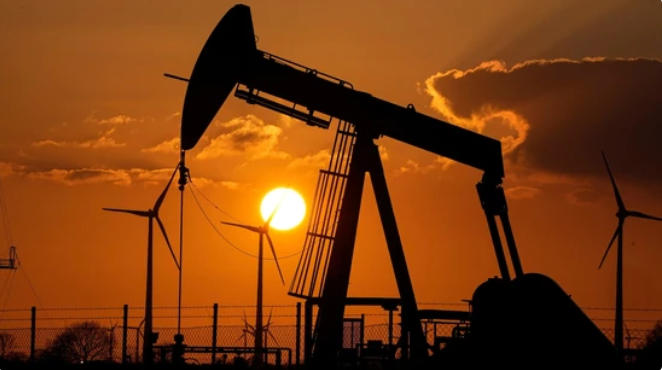Table of Contents
Analysis Of Down To Earth Magazine: A New Energy Order
Context
- Russian President Vladimir Putin’s invasion of Ukraine is forcing governments worldwide to digest the geopolitical consequences of war pursued by an energy superpower.
- Russia and Saudi Arabia are the world’s top oil exporters, accounting for 29% of the global total.
Background
- Soon after Russia’s invasion of Ukraine, the 27-nation European Union has responded by speeding up its disconnection from Russian gas, while the U.S. has barred Russian oil imports and is scouring the world for alternative supplies.
- Saudi Arabia is revelling in a renewed strategic importance as crude prices that collapsed two years ago hit new highs.
- And Russia, by threatening to withhold energy exports to Europe, is being thrust closer to China.
What is a new energy order?
- As the war continues, the shifts underway are inflaming old grievances but also creating the opportunity for fresh alliances as blocs start to align in what looks like a new world energy order.
- The US and Canada have banned all imports of Russian crude oil and the UK has announced that it will phase out crude oil purchases from Russia by the end of the year.
- Russian cargoes of crude oil have been struggling to find buyers as many major firms are avoiding purchasing Russian crude over concerns of reputational damage.

- This represents the biggest re-drawing of the energy and geopolitical map in Europe — and possibly the world – since the collapse of the Soviet Union, if not the end of World War II.
- The outcome, he said, could be “a sequel to the Cold War.”
Country’s Policy Back to Cold War Era
- For Berlin, loosening its energy dependence on Russia is not simply about hitting Moscow’s main revenue stream. It’s a threat to roll back “Ostpolitik,” a totemic post-World War II policy of rapprochement with the Soviet Union, and by extension later Russia, that involved economic and political engagement, notably through oil and gas links.
- The demise of Ostpolitik — symbolized by the halt to the $11 billion Nord Stream 2 gas pipeline — is just one of the most visible signs of the rapid realignment underway as a result of Putin’s aggression.
- Although initial sanctions deliberately spared Russian energy to avoid the knock-on effects for the world, government actions and near-universal condemnation since are rendering its supplies almost untouchable for buyers.
- Diesel prices in northwest Europe have hit the highest since the 1980s as a result.
- Yet as customers desert Russia, its partnership with the oil titans of the Middle East, with which it jointly leads the OPEC+ coalition, has so far stayed intact.
- Saudi Arabia has rebuffed U.S. pressure to replace Russian oil by tapping its spare production capacity, instead of letting prices surge to a 13-year high of almost $140 a barrel.
- Riyadh refused to even brook discussion of Moscow’s difficulties when it was raised at an OPEC+ meeting on March 2.
Why Saudi Arabia does not want to Overpower Russia?
- Riyadh’s OPEC+ partnership with Moscow calmed years of distrust between the two oil rivals and saved the kingdom from relying exclusively on Washington.
- Saudi Arabia doesn’t want to switch horses mid-race when they do not know if the other horse is actually going to show up.
- Gulf Arab nations accused the U.S. of a lack of support in the face of repeated attacks by Iranian-backed militia on Saudi oil facilities and Gulf tanker traffic and on Abu Dhabi this year.
- In a measure of the discord, the United Arab Emirates abstained in a U.S.-led United Nations Security Council vote to condemn Russia’s invasion.
- Another source of friction lies in U.S. efforts to reinstate the nuclear agreement with Iran, Saudi Arabia’s regional rival.
- A deal could see Iran revive production by 1.3 million barrels a day to pre-sanctions levels by the end of the year, according to the International Energy Agency.
What US’s move toward Venezuela signify?
- Demonstrating just how exceptional the times are, a U.S. delegation travelled to Russian ally Venezuela in an overture to a country that holds the largest known crude reserves in the world.
- Venezuela has been subject to international sanctions since the Trump era that have crippled its ability to sell oil.
- The U.S. is looking to confine the spheres of influence enjoyed by Russia and especially China, and for Venezuela, that means a gradual process “to reincorporate with the West, through energy.”
India to buy More Crude Oil from Russia
- India imports about 85 per cent of its crude oil requirements but only about 3 per cent of crude oil imports are ordinarily sourced from Russia.
- India & China will continue to carry on “normal trade cooperation” with Russia, including in oil and gas.
- Russia has already offered huge discounts and India has all the right to buy from Russia.



 TSPSC Group 1 Question Paper 2024, Downl...
TSPSC Group 1 Question Paper 2024, Downl...
 TSPSC Group 1 Answer key 2024 Out, Downl...
TSPSC Group 1 Answer key 2024 Out, Downl...
 UPSC Prelims 2024 Question Paper, Downlo...
UPSC Prelims 2024 Question Paper, Downlo...
